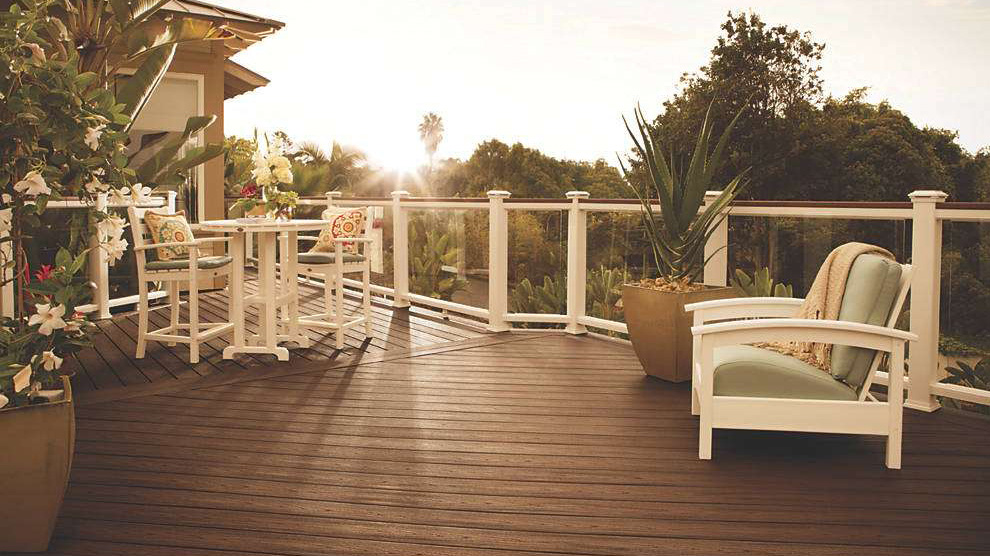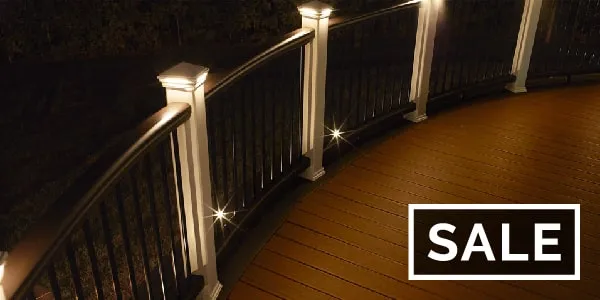Trex Decking vs Wood Decking
The two most common decking materials are composite and wood. Wood can be a cheap, quick-fix option, but over the long run, a composite deck will save you time and money, and give you a longer-lasting deck.
The Trex brand is synonymous with high-quality composite decking, and DecksDirect is your one-stop shop for all things Trex. We make it easy to go from deck planning to Deck-Done.
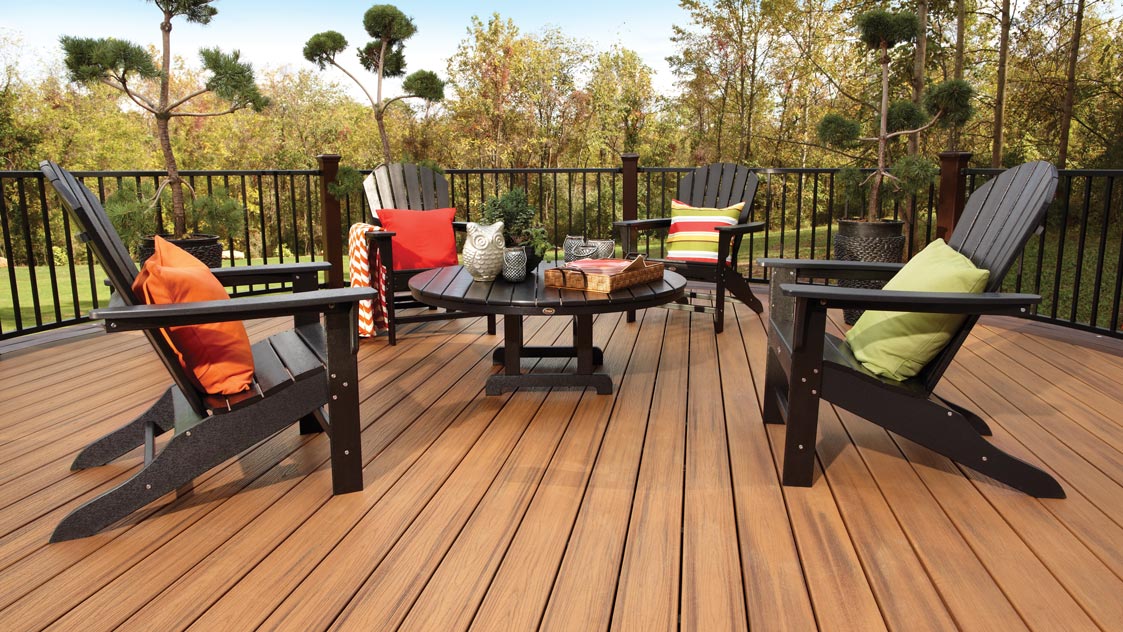
Table of Contents:
- What material is right for my deck?
- Is wood or composite right for my deck?
- Trex Composite vs Wood: The verdict is clear
Wood vs Composite Decking: What material is right for my deck?
Whether you’re starting a new deck build from scratch, or revamping your existing deck, the most important decision you’ll make is material. Buying deck materials isn’t just a one-time purchase. The material you choose for your deck will determine how much time and money you spend inspecting and maintaining your deck over its entire lifespan - not to mention how long that lifespan will be.
Building Your Deck For the Long Haul
At DecksDirect, we see your deck as a long-term investment, and we walk beside you for the whole journey. We hope you’ll be enjoying your deck for 25+ years - and that makes composite decking the clear winner. In fact, we’re so convinced you’ll agree that we have the largest in-stock selection of Trex decking so you can have the most color and style options and get your preferred choice fast.
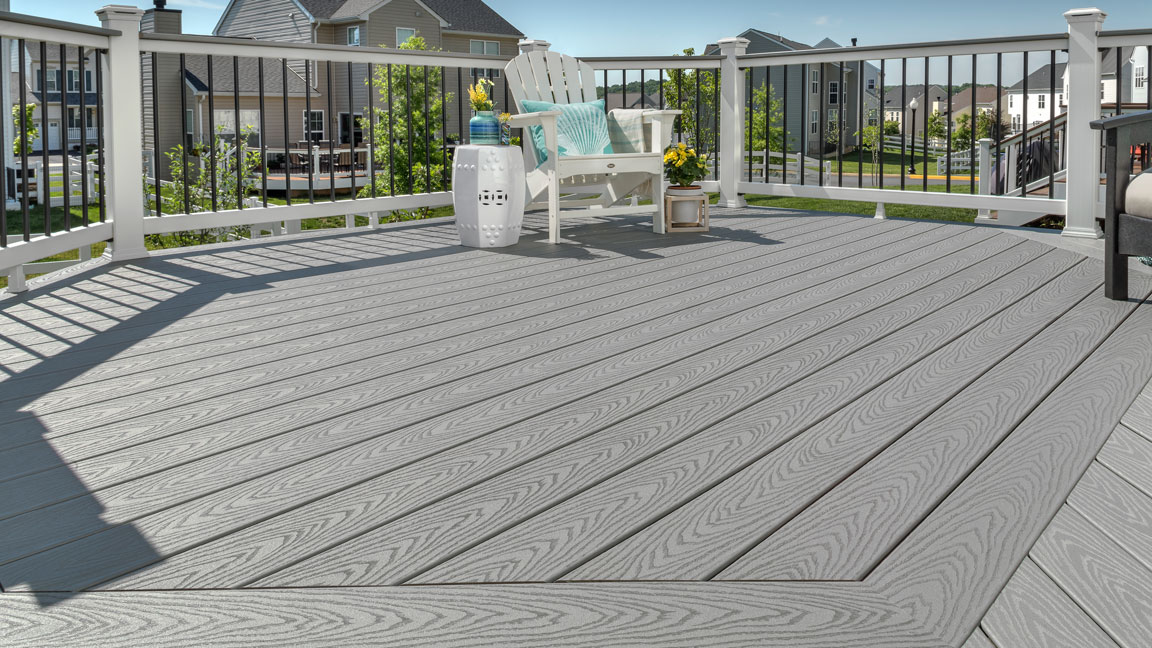
But don’t just take our word for it. Let’s run through the major pros and cons of composite vs wood:
What is composite decking?
Composite decking is made from natural wood fibers mixed with synthetic plastics. The result is a durable, lightweight material that looks and feels like natural wood. Trex is the industry leader for composite decks, so much so that “Trex decking” often gets used interchangeably with “composite decking” among deck buyers and builders.
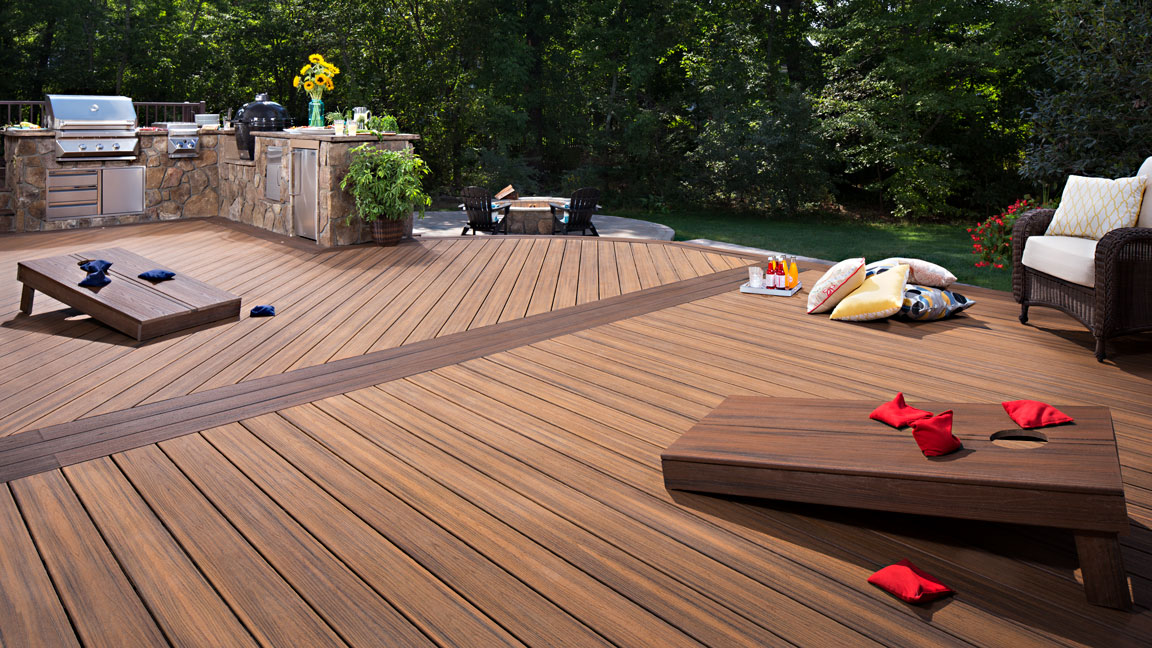
What is wood decking?
In contrast, wood decking is exactly what it sounds like: treated or untreated lumber from trees that have been cut down and processed. Many decks use pressure-treated pine, but other wood options like cedar or more expensive, exotic options can offer different looks and feels.
Is Wood or Composite Right for My Deck?
Let’s run through the pros and cons of wood vs composite decking, with a special eye on the future of decking. Deck technology continues to grow and change over time. You expect to enjoy your outdoor living space for years to come - so it’s important to make sure your deck will stand the test of time.
Durability
Durability has long been the calling card for composite decks. Composite material is extremely weather resistant and holds its look and color for years to come. Since bursting onto the scene in the 1980s, composite technology has advanced rapidly to even further widen the durability gap over wood.
Durability issues of wood:
- Rotting & Splintering
- Fading
- Staining
- Insect damage
One game-changing advance for Trex decks has been the development of a weather-resistant shell. Water absorption is the culprit for many of wood’s durability issues. Wood takes on water, which eventually causes splitting, splintering and rotting. For the same reasons, wood will discolor and show stains, and its overall color will fade over time.
If you’re looking to set your deck up to last, make sure you get a composite deck board with a weather-resistant shell, which will keep water out and preserve the original color, look, and feel of your chosen decking.
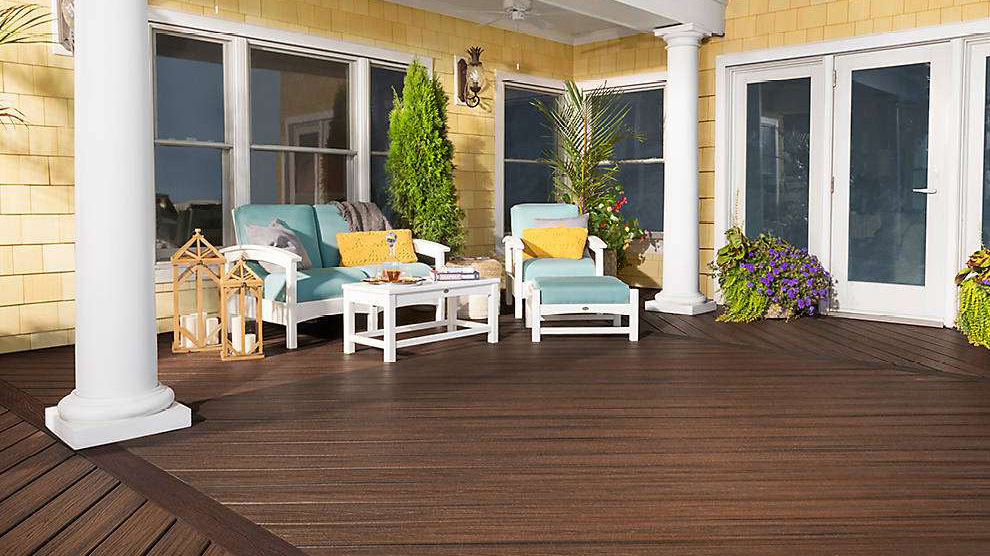
Maintenance
In many ways, durability and maintenance go hand-in-hand. Because of wood’s propensity to absorb moisture, you’ll have to be proactive in protecting your deck. Most experts recommend staining a wood deck every 2-3 years - and that’s in addition to regular washing and cleaning in between.
Composite decking, in contrast, requires less maintenance. Not only can you remove regular staining from your to-do list, you’ll also save time on cleaning. Here’s a really good visual look at how easy it is to clean off a Trex deck. Calling wood “high-maintenance” probably doesn’t fully capture just how much more time you’ll ultimately spend cleaning and maintaining a wood deck compared to a composite one.
Once again, getting a composite board with a weather-resistant shell (like those offered by Trex) will work wonders to reduce your deck’s maintenance needs. Wood boards that are splintering, rotted, or cracked will need to be regularly inspected and replaced. Long-lasting composite boards are much lower-maintenance. Trex, for example, offers a 25-year residential warranty on most of its decking.
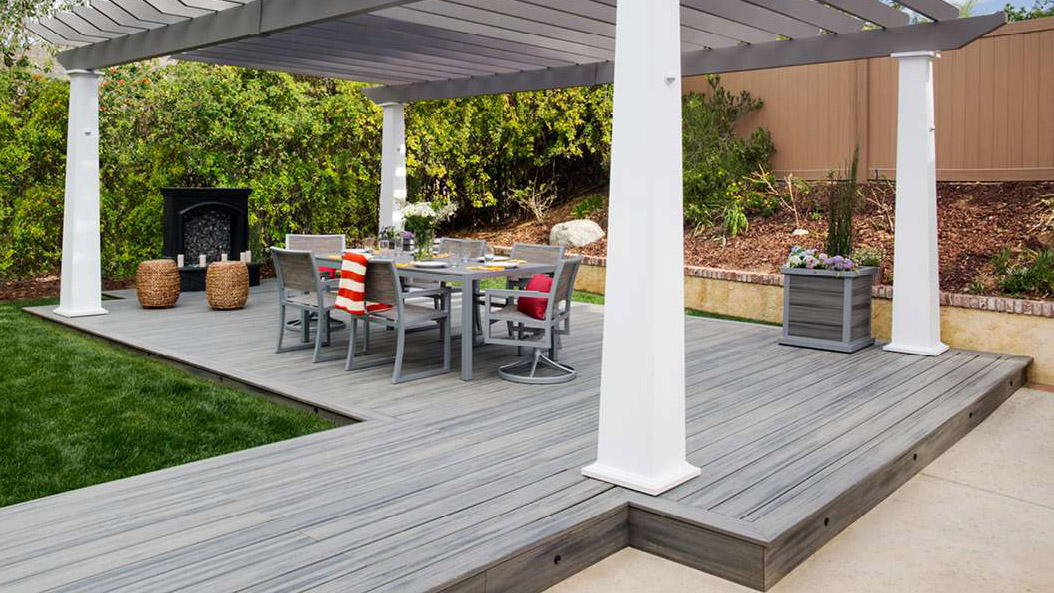
Appearance
In the early days of composite decking, appearance was the biggest hurdle for the new material to overcome. Many homeowners were used to wood decks and preferred the look of natural wood to the composite material.
But technology has come a long way in 30 years. Color and style options in composite decks have exploded. Trex boards are designed with textured surfaces that look and feel like natural wood. High-quality composite decking, like Trex, will vary its wood grain patterns from board to board for a natural look.
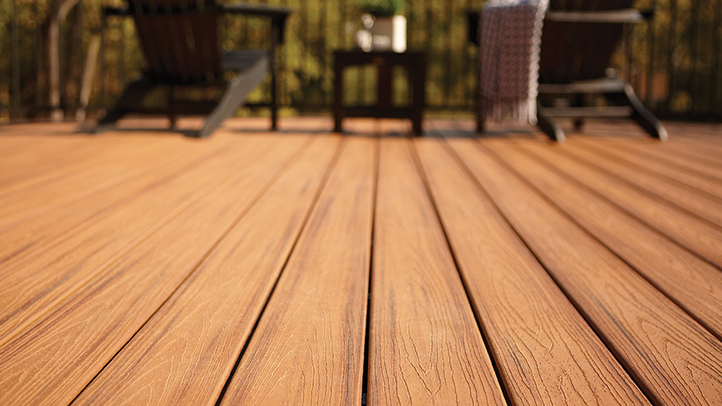
Of course, when it comes to appearance, there’s how the board looks when you install it… and how it looks five, ten, twenty years down the road. The upside with composite decking is that it largely holds its appearance through the wear-and-tear of use, weather, and time. Wood decking will inevitably wear down - how much it wears down is highly dependent on how much time you spend maintaining it.
Price
Typically, composite decking will cost you more at purchase time than wood decking - all that weather-resisting technology doesn’t come without a price. Over the long term, though, the comparison isn’t quite as clear.
In many ways, the total cost is going to depend on how long you plan to use and maintain your deck. A wood deck comes cheaper at the start, but also effectively comes with a recurring payment plan, because you’ll have to buy and apply stain every two or three years. Depending on your local sun, rain and other weather conditions, you may end up repairing or replacing boards over the years.
A composite deck usually costs more at installation, but also saves you on recurring maintenance costs throughout its lifespan.
Prices for all types of goods, of course, can fluctuate. If you’re really looking to get maximum value on your deck build, you can time those fluctuations to save money at install and long-term. That’s called having your cake and eating it too - preferably on a luxurious deck.
Skyrocketing lumber costs and lack of available inventory have cut into wood’s usually-manageable price point. If you can catch premium composite decking at a good price, you can end up paying about the same as you would for wood, but also setting yourself up for composite’s long-term savings on maintenance and upkeep.
Extreme Heat & Cold
As an outdoor living space, your deck will experience the extremes of your local climate firsthand. You’ll want to weigh the weather when you make your decking decisions.
If your deck is in direct sunlight, your deck boards can get uncomfortably hot. Both composite and wood decks trap heat, but a composite deck generally transfers the heat more quickly to your feet, making it difficult to walk barefoot on your deck during the heat of the day.
Whether wood or composite, though, your deck’s heat is more determined by color than by material. A dark-colored deck board will get hotter than a light-colored board - so if your deck is in direct sunlight, we’d recommend a lighter-colored deck board to reduce the heat. We’ve got 17 different Trex color options in stock, so you’ll have plenty of options even within the lighter color palettes.
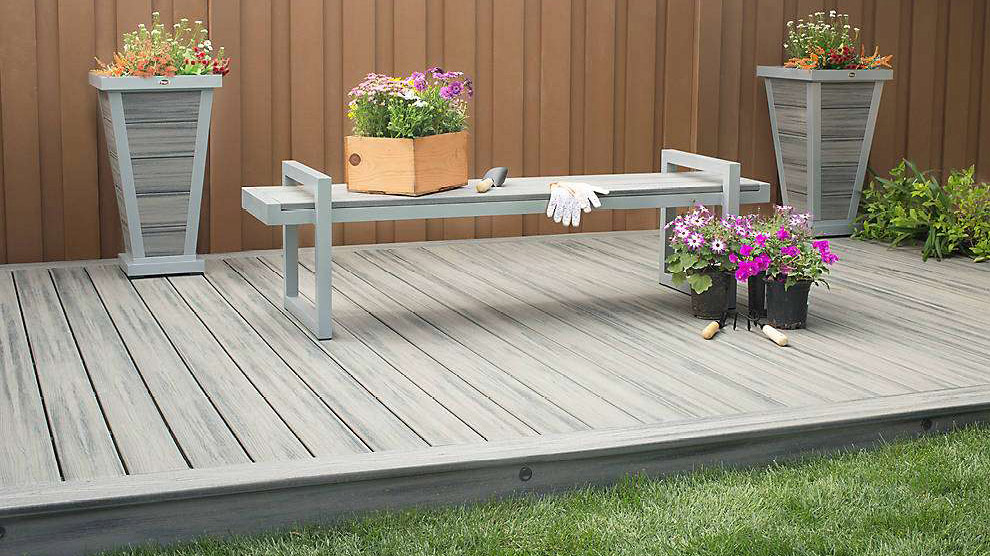
Effectively the opposite is true in cold climates - wood’s propensity to absorb and hold water can be especially costly in cold weather, where deck boards can take on water and freeze. The intense expanding and contracting of changing temperatures puts a heavy strain of wear-and-tear on your wood deck boards, while composite decking won’t absorb moisture and won’t expand or contract as much with changing temperatures. That means a longer lifespan on your deck boards.
Environmental Impact
Of course, choosing your deck affects more than just your bottom line. Producers and consumers are becoming more and more aware of the impact every decision has on the environment.
For the environmentally-conscious, composite decking is the eco-friendly choice. Trex makes all of its composite decking from recycled plastic film and reclaimed wood, using 95% recycled and reclaimed materials.
Ironically enough, while wood decking has often been marketed on its natural appeal, demand for wood has had negative effects on the natural world. With widespread deforestation a concern around the globe, composite decking is a conscientious choice.
Trex Composite vs Wood: The Verdict Is In
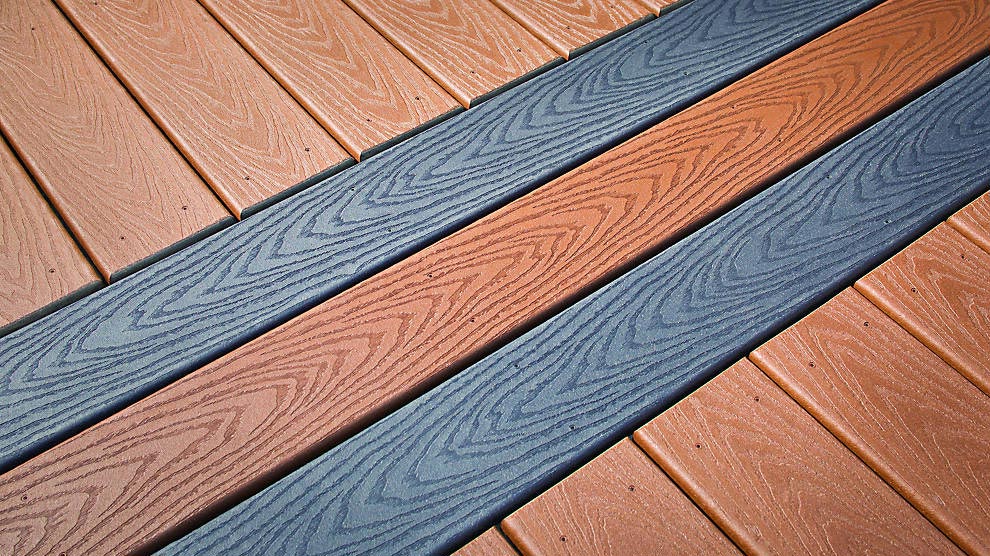
With all pros and cons of wood vs composite considered, we recommend composite decking to best set your deck up for long-term enjoyment. A durable, low-maintenance Trex deck is a sound long-term investment that won’t commit you to the unwieldy regular upkeep demands of wood. And there’s never been a better time to get premium Trex decking for your deck renovation or your new build.
It’s important to us that you get the best information to help make your deck decisions. That’s why we’re committed to our promise of Real People, Real Service. When you call DecksDirect, you’ll reach a real deck project planner who can answer any and all questions, from the planning phase to specific style choices to support during and after the deck build.
We love helping our customers build better decks. Give our experts a call today and you’ll be enjoying your beautiful outdoor living space in no time!
